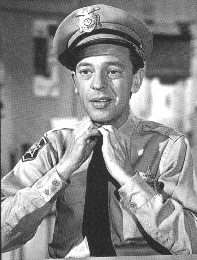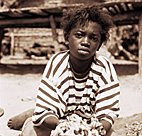the bridge is love
 Monday mornings are down time for me.
Monday mornings are down time for me.
After two full days at the restaurant and one at church, I lay pretty low here at the house. Ginger was gone on a clergy retreat, so I stopped at Blockbuster on my way home from youth group to pick up a movie for breakfast. The one that caught my eye was The Bridge of San Luis Rey. I love the novel both for the quality of the story and because I feel a strong connection to Thornton Wilder. The movie was watchable because the story is so incredible; the casting choices make the film fall short of what it might have been.
Ten years ago, I enrolled in the summer workshop of the Humber School for Writers in Toronto. I came to a place in my life where I decided it was time to quit talking about wanting to write and do some damn writing. At the workshop, I had a chance to work with Timothy Findley, a wonderful Canadian writer. The workshop led me to sign up for the year-long correspondence course, and Findley mentored me as I wrote a novel in the year that followed. As he shared his insights on writing, he also shared his story . Tiff, as his friends called him, started out as an actor. He was working with Wilder and Ruth Gordon in a production when he wrote his first short story; they both encouraged him to write, thank God, just as Tiff encouraged me. He died in his sleep in 2002.
. Tiff, as his friends called him, started out as an actor. He was working with Wilder and Ruth Gordon in a production when he wrote his first short story; they both encouraged him to write, thank God, just as Tiff encouraged me. He died in his sleep in 2002.
The ways in which the circumstances of life connected me to these amazing people is not unlike the idea behind the story. Five people were crossing the Bridge of San Luis Rey when it gave way and they fell to their deaths in the ravine below. A priest who was about to cross saw the event as a chance to ask one of the ultimate questions: "Do we live by plan and die by plan or do we live by accident and die by accident?"
Separate of the story, Wilder said, "Some say that we shall never know and that to the gods we are like the flies that the boys kill on a summer day, and some say, on the contrary, that the very sparrows do not lose a feather that has not been brushed away by the finger of God."
The novel is a beautiful tapestry showing both the individual lives and the ways in which they were woven together and connected with the lives around them. The one person who knew all five who died was a nun. She closes the story with these words: "There is a land between the living and the dead, and the bridge is love. The only survival. The only meaning."
The bridge is love -- the one bridge, ultimately, that doesn't give way.
One of those who commented on my "open and affirming" post did so with a great deal of vitriol and violence. His language spoke of God striking me down, of my words bringing God's judgment such that God would kill "children, mothers' and grandmothers" because I was willing to participate in equal marriage. As people tried to respond to him, the volume of hatred only ratcheted up.
When the disciples saw a blind man, they asked Jesus, "Whose sin made this guy blind?"
"Nobody's sin," Jesus answered. "Look at it a different way: what can the love of God accomplish in this circumstance?" And he healed him.
When judgment is the paradigm, we all end up dead in the ravine.
The bridge is Love. The only survival. The only meaning.
Peace,
Milton
PS -- Starting tomorrow, this blog will take a bit of a different shape. About fifteen years ago I began, as my Lenten practice, writing everyday. Before email, I picked one friend and wrote a journal the them. Over the years, my daily entry has been to a growing email list; this year it will happen here. My commitment is to write a thousand words a night chronicling my journey through the Lenten season. This year, our youth ski trip falls such that I will miss writing this Saturday, but other than that there will be an entry everyday. Peace -- MB-C











